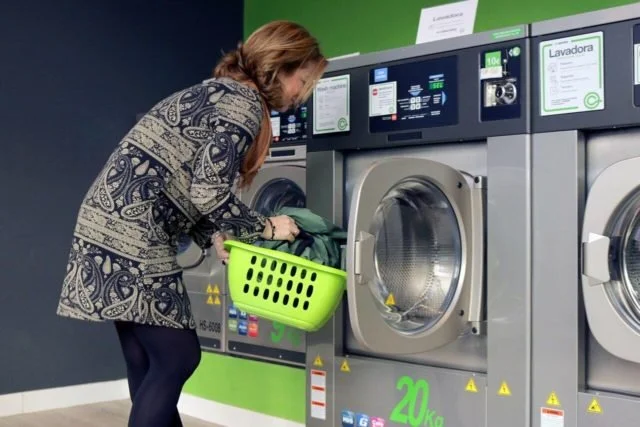Water cremation is set to be made available for the first time in the UK. The process, known as resomation, uses a mix of potassium hydroxide and water to break down human remains in what is billed as a more sustainable option. It takes four hours - the bones remain, and are powdered then returned to loved ones in a similar way to ashes, in an urn. Resomation is used in Canada, South Africa and many US states.
Province approves two new wind farms
The company has partnered with 13 Mi'kmaw bands in the province under the auspices of Wskijnu'k Mtmo'taqnuow Agency Ltd. Environment Minister Tim Halman's approval comes with conditions for both projects, including stipulations concerning water, wildlife and habitat, air, noise and the visual impact, public engagement, contingency planning and site reclamation.
Opinion: Treated mine water release essential to oilsands reclamation
Current global unrest and ongoing impacts from the pandemic have brought the security of supply of energy and resource products into sharp focus, not just for Canadians but our allies around the world. This priority was reinforced at the highest political levels with Deputy Prime Minister Chrystia Freeland saying in a recent speech that “Canada must — and will — show similar generosity in fast-tracking, for example, the energy and mining projects our allies need to heat their homes and to manufacture electric vehicles.” There is no doubt that Canada and its allies need stability when it comes to ensuring demand for mined products is met, and this extends to our oilsands mining sector.
Record summer fuels extreme water temperatures, tropical trouble brewing?
Bathtub water enveloping Newfoundland? Hardly, but it's extreme relative to what waters you typically find sloshing around the shores of Atlantic Canada. You're probably familiar with temperature anomalies on land. Often meteorologists reference how much the thermometer deviates from climate normals. Land temperature anomalies can reach 20°C above, like this week across portions of Coastal California.
Saskatchewan's plan to build small nuclear reactors draws mixed reactions
Saskatchewan's push to build small nuclear reactors in the province is drawing mixed reactions from academics and environmental groups, with some touting the clean energy potential while others say it's a threat to human safety. On Monday the province, along with representatives from Ontario, Alberta and New Brunswick, released the strategic plan for expanding nuclear power by building small modular reactors (SMR). The report said the nuclear reactors are safe, reliable and a source of "zero-emission energy."
Morning Start: There’s no difference between hot and cold water during laundry
Fun Fact: Because of advances in soap and detergent, there is no difference between using hot water and cold water when washing clothes. The only difference is you’re spending more money using all that hot water because approximately 75 per cent of energy used in a load of laundry is to warm the water.
Canada is an energy superpower – and that doesn’t just mean oil
But the future is going to require all kinds of energy – solar, wind, hydro, nuclear, bioenergy (and yes, fossil fuels too). Even the formerly oil-centric IEA has shifted; last May, it issued a landmark road map to net zero by 2050. Canada has long been wealthy in energy, and will continue to be. Fossil fuels were the cornerstone, which is why they became synonymous with “energy.” But it’s time to redefine the term. Canada has vast resources beyond oil and gas. When we say energy, we need to also see solar, water, wind and, yes, uranium. They’re right there. We just have to tap them.
Innovative wastewater energy tech to be installed at Toronto Western Hospital
An innovative German-developed wastewater-to-energy technology system is coming to Toronto in a very big way and the cited benefits include reduced air pollution and a cleaner climate. In what is being described as “delivery of the world’s largest raw wastewater energy transfer,” Huber Technology’s patented ThermWin system will be installed at the University Health Network’s Toronto Western Hospital.
Canadians drink about 2.5 billion litres of bottled water a year
Canadians drink approximately 2.5 billion litres of bottled water a year, so that is a heck of a lot of plastic bottles. While Canadians, and especially here in B.C., are pretty good at recycling theses bottles there is still a huge impact on the environment. For starters, if you factor in making the plastic bottles the water comes in, it takes manufacturers up to three litres of water to product one litre of bottled water. Then you have the energy it takes to produce the bottles from the petroleum raw materials, clean them, label them, fill them, and package them. They then have to be transported to the stores, using more energy. Then they are picked up and transported to your home, and finally disposed of.
Quebec museum exhibit to wade into the history and potential of human waste
The excrement that is flushed away in Canadian toilets each day is the world's "most underrated, limitless resource,'' says the creator of a new museum exhibit that delves into one of humankind's messiest subjects. Coline Niess of the Musée de la civilisation in Quebec City says the upcoming exhibit titled "Oh Shit!'' will explore all the facets of human waste — and that it's not a laughing matter.











